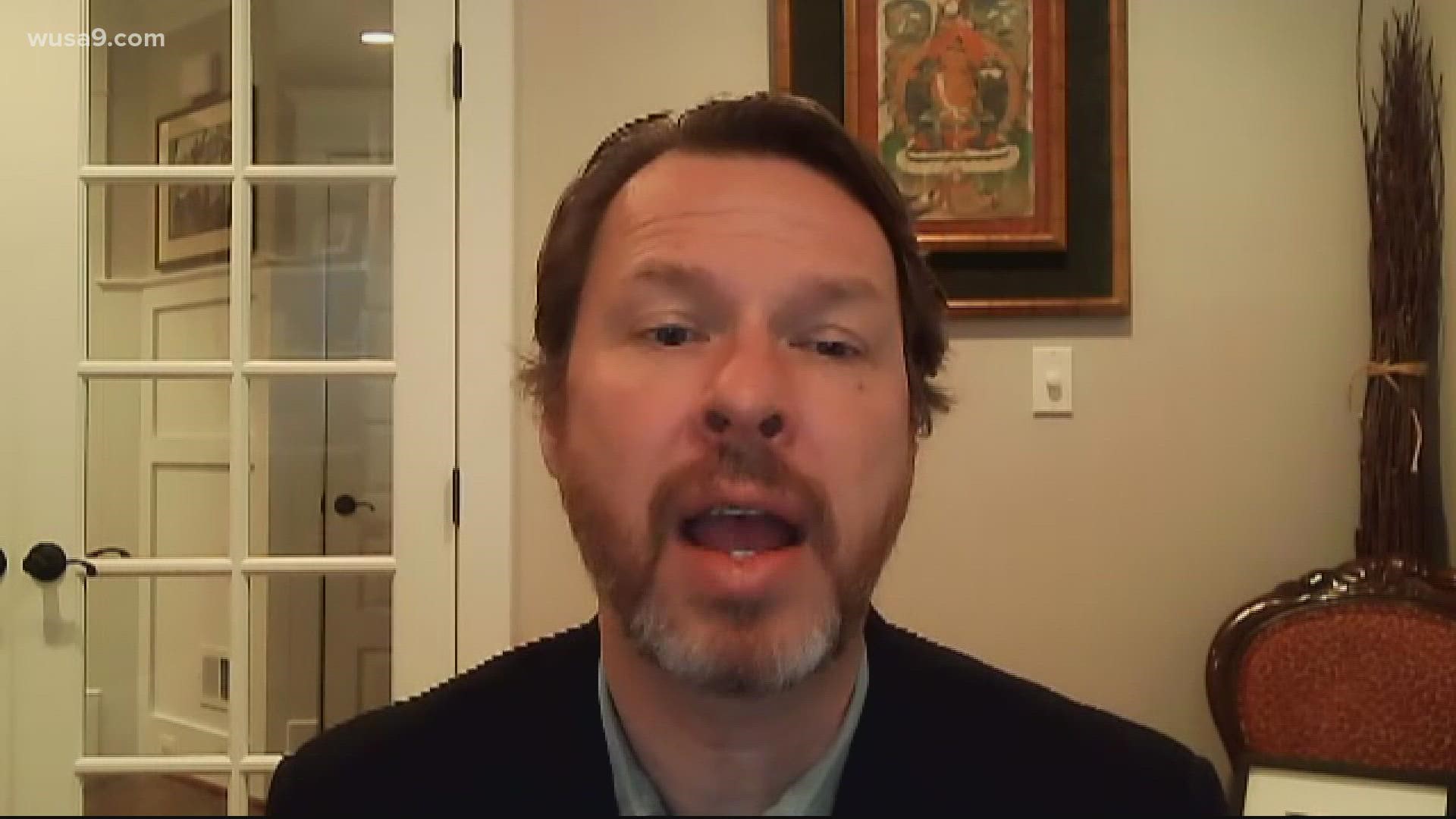ARLINGTON, Va. — Even as COVID-19 cases trend downward in our area, many people caught the virus over the last two months. Now, companies are being forced to figure out how to adapt...again.
Take Jennifer, for example.
She's a single mom working in manufacturing at a pharmaceutical company in Maryland and contracted COVID-19 right at the start of 2022.
She has already used up all her sick days and now worries about what will happen if she or her kids contract it again.
“I did everything I could to avoid it, and I ended up with it," Jennifer said. "And it's just not fair to me that I have to use all my sick days, and then spend the rest of [the] year afraid to get sick again."
She's vaccinated and boosted.
"I did all this just so I would protect myself from getting COVID and then missing time from work," Jennifer said. "Because I'm a single mom, so you know, my income's important."
So how are companies adapting to potentially handle future surges in COVID-19 cases?
Brian Kropp, Chief of Research with Gartner HR, said the best organizations are doing a few things.
"One, they have created as much flexibility as possible, not just about where people work, which is what a lot of the focus of flexibility is printed out, but about when people work and how much people in creating as much flexibility as they can," he said. "Two, they've really been focusing on trying to build deeper connections with those employees. And then the final thing that we're seeing these organizations do, is really trying to think about creating a better shared bigger shared purpose, that we're trying to stand for something bigger and bolder than we ever have before.”
David Pearson, Senior Vice President of People and Culture at Extensis HR, said the pandemic will likely have long-term impacts on business.
“Businesses are really starting to drive towards being a little bit more empathetic, going to that unlimited sick policy or PTO policy, anything along those lines. I think the biggest thing is businesses are realizing they have to have contingency plans," Pearson said. "What I've been advising a lot of our clients is that, if you think about the time to fill, so it's going to take you six weeks, eight weeks to fill that role, does it make sense to really accelerate your PTO programs and focus on that as a high priority item.”
Jennifer is hoping that her company listens to this advice and adds in some flexibility.
She also wants the state of Maryland to extend the paid COVID-19 leave it offered earlier in the pandemic, which has since expired.
In recent contract negotiations, Gov. Hogan granted 10 days of paid COVID-19 leave to vaccinated state employees through the end of 2022, but that does not extend to private companies.

